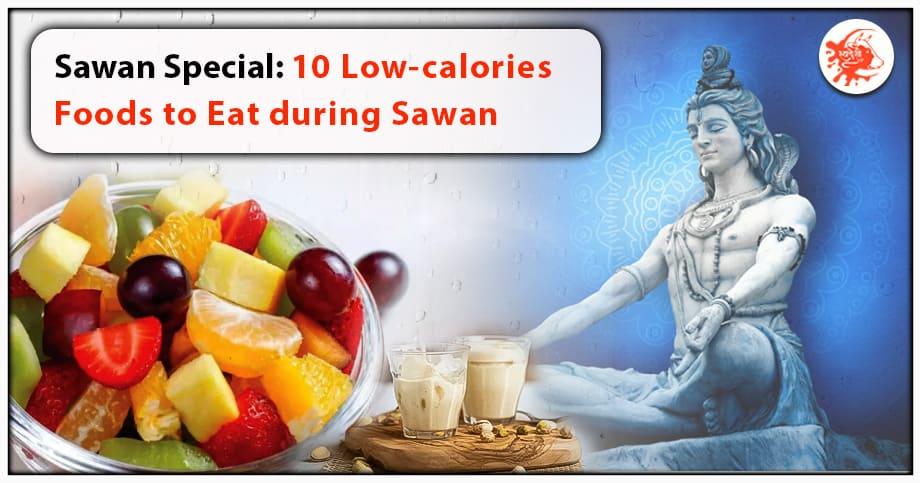
Sawan, an auspicious month in the Hindu calendar which holds high cultural and religious importance, is around the corner. According to Hindu mythology, the regenerator and destroyer of the world, Lord Shiva, is worshipped during this holy period. Devotees worship the Supreme Being and observe fast, or some follow a special diet as a mark of reverence. During the holy month of Sawan, food is a major source of showing devotion and respect to the high being; for example, abstaining from the consumption of alcohol and non-vegetarian food, and some even avoid the consumption of onions and garlic. Fasting is a proven method to purify our mind and body, while devotees simply look at it as a small act of worship to seek blessings and pray for the well-being, prosperity, and happiness of their loved ones. But uneven and unplanned consumption during the fasting process can lead to nausea, headache, weight gain, and more. So, in this article, we bring you foods to eat during Sawan period that are low-calorie and healthy.
Now every auspicious period in Hindu mythology has a story, and so does the holy month of Sawan. The tale of Samundra Manthan is intricately linked with the month of Sawan. It depicts the churning of the cosmic ocean, where both the Devtas and Asuras come together to obtain the nectar of immortality. Lord Vishnu took the form of a giant turtle to support the churning of the elixir as the pivot. As the process continued, several gods and goddesses, along with precious objects, emerged, including Kamadhenu, the divine cow, Goddess Lakshmi, Airavata, and the celestial elephant. And lastly came, Dhanvantari, the physicians of the devtas, who emerged out of the pot carrying the elixir of immortality. However, a fierce battle erupted between the Devtas and the Asuras to possess the Amrit. But the Amrit was rested under the layer of poisons. And Lord Shiva decided to consume the poison to save the world and distribute the elixir among the gods. To stop the poison from entering his body, goddess Parvathi held Shiva’s neck to stop the flow of poison, which turned his throat blue, earning him the name “Neelkanth[1]”. And to express gratitude and respect toward his selflessness, devotees engage in prayers, fasting, and other religious practices during the period of Sawan. Devotees also offer Gangajal to the Shiv Ling to ease his pain and discomfort caused by poison.
In today’s article, we will provide you with a list of 10 foods to eat during Sawan that are both low-calorie and nutritious. As food holds great significance during the month of Sawan, many devotees observe fast or follow a restricted diet as a way of devotion and worship. Traditionally, people opted for food prepared without garlic, onion, and non-vegetarian ingredients. This elimination is proven to purify our mind and body as well as spiritually strengthen our overall well-being. Additionally, adapting to unhealthy food choices while fasting or consuming only one meal throughout the day can affect our health negatively. In this article, we will provide you with a list of low-calorie of foods to eat during Sawan periods. These food choices will help you include a well-balanced diet filled with essential nutrients and vitamins, and more.
Let’s read through the list of 10 foods to eat during Sawan that will balance your spiritual and physical health and leave you filled, full, and energised for a longer period. This list of foods to eat during Sawan is made by keeping in mind both the summer and monsoon seasons. Let’s get started:

The month of Sawan is an extremely auspicious month, according to the Hindu calendar, as it highlights our religious and cultural fervour. During this holy period, devotees offer prays, observe fast, or follow a specific diet as a mark of reverence to our supreme being, Lord Shiva. This article highlights 10 foods to eat during sawan that are extremely delicious, filling, nutritious, and low in calories. By incorporating these delicious fruits and vegetables into our diet, one can maintain a balanced diet along with experiencing the benefits of both spiritual and physical well-being during the sacred month.
Read our Article: What are The Spiritual Aspects of A2 Cow Ghee very few People Know?
